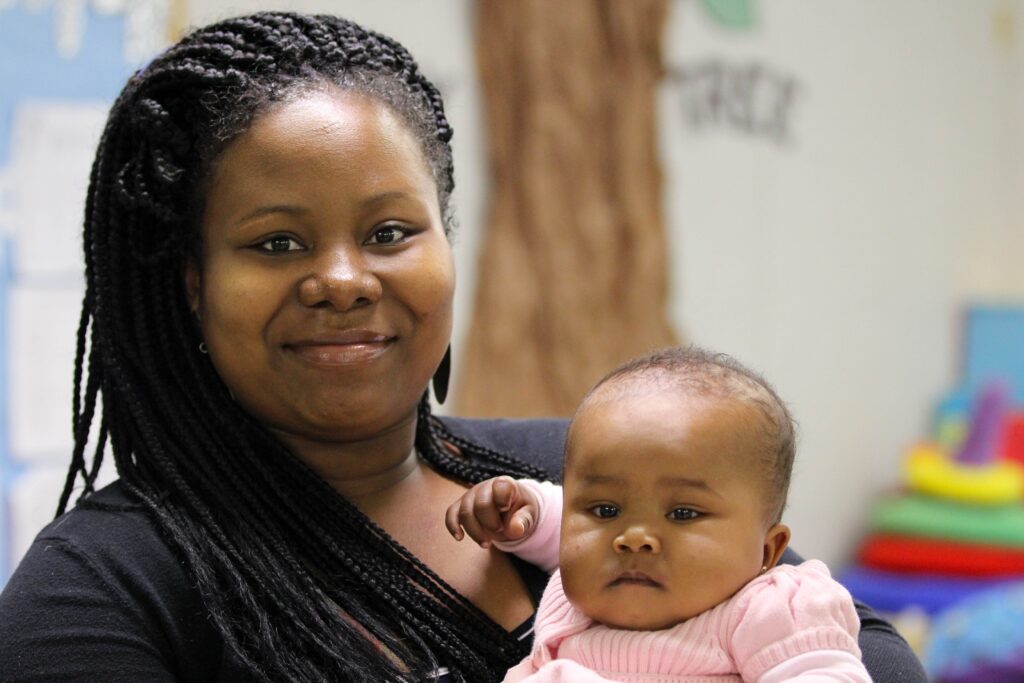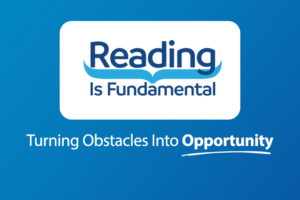House of Ruth | October 4, 2017
Help Survivors of Domestic Violence Find Hope at House of Ruth

 Domestic violence is a common and deeply harmful problem in American society, with one in four women experiencing physical violence at some point during their life time, and children are the “hidden” victims. On a local level, the statistics are equally distressing. In 2015, 34,966 domestic violence-related calls were made to the Metropolitan Police in 2015, approximately one call every fifteen minutes. 27% of homeless families in Washington, D.C. reported a history of domestic violence, and 15% were homeless as a direct result of a violent incident. (Source: DC Coalition Against Domestic Violence’s 2015 Statistical Snapshot). House of Ruth is there for these families.
Domestic violence is a common and deeply harmful problem in American society, with one in four women experiencing physical violence at some point during their life time, and children are the “hidden” victims. On a local level, the statistics are equally distressing. In 2015, 34,966 domestic violence-related calls were made to the Metropolitan Police in 2015, approximately one call every fifteen minutes. 27% of homeless families in Washington, D.C. reported a history of domestic violence, and 15% were homeless as a direct result of a violent incident. (Source: DC Coalition Against Domestic Violence’s 2015 Statistical Snapshot). House of Ruth is there for these families.
Hope Starts Here
House of Ruth serves women, children and families struggling to overcome the negative impacts of trauma and homelessness. Each of the 84 families they serve in their residential programs have experienced homelessness, as have the more than 100 single women who live with them. Sometimes they’ve been on the streets, sleeping in parks, abandoned buildings or cars. More often, women have moved from one unstable place to the next, doubling up with family, friends, acquaintances, or, often, abusive men. In need of a steady home, they haven’t had a stable place to live in months or even years, until coming to House of Ruth. There, they can finally rest, breathe, and begin to think about a future more than a day or two down the road.
House of Ruth serves a more diverse group of women at their Domestic Violence Support Center, where a team of highly skilled therapists provides counseling and case management. At the Support Center, one-third of the women served are employed, while the rest are impoverished and often lack the skills and education to compete for a job.
Keeping Children Safe, Healthy and Happy
House of Ruth serves 200 children in our six housing programs for families, where they receive individualized attention to help overcome the behavioral and emotional challenges that accompany experiencing trauma and homelessness. Children ages six weeks to five years old attend Kidspace, House of Ruth’s therapeutic child development center. Kidspace provides critical early-childhood learning and services to 100 homeless children annually, and is open year-round from 7a.m. – 6 p.m. Monday through Friday. In addition to an excellent infant, toddler, and pre-school curriculum, children meet with occupational, speech and play therapists who help them cope with trauma. Parents receive case management services to help them address the multiple challenges in their lives and to help them become engaged in positive ways in their child’s development.
The children who come to House of Ruth have been raised amidst the chaos of homelessness. They are hungry for safety, support and healthy boundaries –basic requirements for their healthy development that have been missing in their lives. Nearly every child House of Ruth serves has developmental delays and many have permanent special needs.
Changing Lives
Your support will change the lives of women and children like Jolanda and her daughter Kiara (names changed).
Jolanda never thought she would need to seek refuge in a safe house. But thirteen years ago, that’s just where she and her children – an eight-year old, five-year old and little three-year old Kiara – found themselves. Jolanda had tolerated abuse from her older children’s father for many years. Terrified of being without a home if she left, she bore the brunt of his assaults, but one day, she could take it no longer. In a rage, her abuser launched a computer at Jolanda. Little Kiara had just walked into the room. The computer missed Jolanda, but it barely missed hitting her small daughter. That’s when Jolanda knew – she needed out.
Thankfully, Jolanda had heard of House of Ruth, and called their hotline. She spoke with a clinician who arranged for her to get to a safe house. Once there, the family was assigned a personal advocate. And that’s how Jolanda learned of an opening at Kidspace, House of Ruth’s nationally accredited child development center – where Kiara could overcome developmental delays that sadly often occur in children who witness abuse. During the two years that Kiara attended Kidspace, she received play and speech therapy, ate healthy meals, and made new friends.
Today, Kiara is a senior in high school, and hopes to go to college in New York to become a nurse. She’d like to work in labor and delivery, helping to bring new life into the world. Kiara fondly remembers her days at Kidspace and Jolanda can’t imagine how the family would have gotten back on their feet without the support of House of Ruth.
How you can help
Financial donations are the best way to help the women and children House of Ruth serves. Your financial support will provide the women and children House of Ruth serves with critical housing and therapeutic support delivered by expertly trained staff. With you, women and children who come to House of Ruth will find the resources they need to rise above their circumstances, to heal, and to reach their full potential.
Help bring hope to more than 650 women and children this year by designating House of Ruth in your workplace giving campaign (CFC#83599 if you’re a military or federal employee participating in the Combined Federal Campaign).

Get Resources and Insights Straight To Your Inbox
Explore More Articles
Workplace Fundraising + Volunteering Summit (April 2nd and 3rd, 2025)
Join us in attending this virtual summit! The America’s Charities team is joining up with other leading voices in the workplace giving space for a…
Read ArticleThe Time to Act is Now
The results of the 2024 National Assessment of Educational Progress (NAEP) are in, and the findings are, in a word, heartbreaking. This assessment serves as…
Read ArticleOpen Position: Non-Profit Account Manager, Employee Assistance Funds & Scholarships (Remote – Full Time)
We are professional, agile, customer-centric and our goal is to inspire employees and organizations to support causes they care about. We help nonprofits fundraise unrestricted,…
Read ArticleGet Resources and Insights Straight To Your Inbox
Receive our monthly/bi-monthly newsletter filled with information about causes, nonprofit impact, and topics important for corporate social responsibility and employee engagement professionals, including disaster response, workplace giving, matching gifts, employee assistance funds, volunteering, scholarship award program management, grantmaking, and other philanthropic initiatives.




